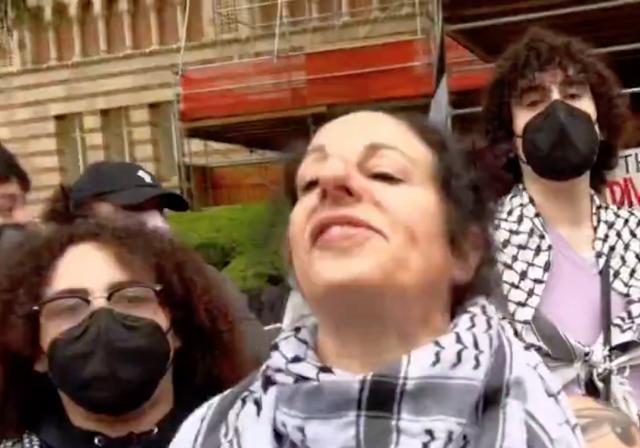The protests all over American campuses that have also been spreading to high-schools are a definitive threat to America, this has been proven with the arrests of professional protesters aligned with Marxist and Islamist organizations. However, it is also an existential threat to Israel, and one of Israel's premier think tanks came to warn the government of just how and why that is.
Yesterday, Dan Diker, President of the Jerusalem Center for Public Affairs (JCPA), voiced serious concerns to a Knesset committee, highlighting that anti-Israel protests on American college campuses represent a severe threat to Israel's existence. Speaking during an emergency meeting of the Immigration and Absorption Committee of the Knesset, which was convened to address antisemitic rhetoric prevalent on U.S. campuses, Diker emphasized the urgency of the situation. The meeting also saw participation from Minister of Diaspora Affairs Amichai Chikli, along with leaders from organizations actively combating antisemitism.
A detailed and highly comprehensive piece on the funding and organizations behind the campus protests. Worth a careful read.
— Bill Ackman (@BillAckman) May 8, 2024
The People Setting America on Fire - Tablet Magazine https://t.co/IoTvCbEAhA
Diker, an author of multiple books on the dangers of campus antisemitism and BDS movements, insisted that Israel must remain vigilant and reject harmful narratives such as being labeled an apartheid or occupying state—claims that have persisted since Yasser Arafat's 1974 speech at the U.N. General Assembly. He advocated for stronger collaboration with Jewish organizations globally, particularly within university Middle Eastern studies departments, which he noted have become increasingly radicalized.
Furthermore, Diker proposed that Israel's National Security Council should spearhead efforts to combat antisemitism, treating it as a significant security threat not only to Jews worldwide but also to the very security and existence of Israel.
These are Emory students “training” for campus protests
— Three Year Letterman (@3YearLetterman) May 8, 2024
I’m not sure any video has never lettered in shit harder than this one
pic.twitter.com/HwZHWSOSSC
The concern extends beyond higher education into secondary education across the U.S., where high school students have also been actively protesting the war in Gaza, drawing Congressional attention. These young activists, unable to vote but moved by global protest movements and social media exposure to the conflict, have organized demonstrations, sit-ins, and walkouts. For instance, there have been student-led protests in cities like Chicago, Salem, Austin, and throughout Washington state.
Public school leaders from progressive cities such as Berkeley, New York City, and Montgomery County have defended their policies and responses to antisemitism in educational settings in a recent GOP-led House committee session. This included discussions on incidents like protests against a pro-Israel teacher in New York City. These school officials have faced scrutiny and accusations but maintained that they protect all students within their districts.
A public school in Chicago rejected a Jewish student's request to hold a vigil for October 7th victims after the massacre, then let hundreds of students out of class to join the pro-Hamas, law-breaking encampments at Chicago campuses.
— Vinnie Pukh (@VinniePukh) May 8, 2024
Explain?https://t.co/e9f6kXGVxT
Moreover, the discourse among the youth reflects a broader shift seen since the Hamas attack on October 7, where Gen Z’s perspectives tend to be more critical of Israel compared to older demographics. The significant impact of social media platforms like TikTok and Instagram has also played a role, where young users encounter daily content from Palestinian journalists and activists, which significantly influences their views and advocacy.
This blend of academic advocacy and student activism underscores the complex, layered challenges Israel faces on international fronts, particularly in the arena of public opinion and youth engagement.


